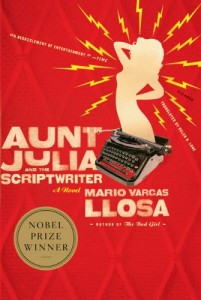 Argh. I’ve done it again! And I can’t even blame anyone else this time, I mean the book clearly states «The Clifton Chronicles Volume 1». Why, why, why did I not take five seconds to check online and confirm that, yes, there will be a sequel, and no it’s not available yet (April next year, apparently). Then I could have put the book back on the shelf and found something else to read. Instead I read it. I even got so caught up in the story I read waaaaaaay past my bedtime (I would have finished it that night if the lass hadn’t woken up and demanded to sleep in our bed, so I had to turn off the lights to get her to sleep). And then, of course, as the amount of pages left in the book diminished while there was obviously quite a lot of story still to go, it dawned on me. But too late, alas.
Argh. I’ve done it again! And I can’t even blame anyone else this time, I mean the book clearly states «The Clifton Chronicles Volume 1». Why, why, why did I not take five seconds to check online and confirm that, yes, there will be a sequel, and no it’s not available yet (April next year, apparently). Then I could have put the book back on the shelf and found something else to read. Instead I read it. I even got so caught up in the story I read waaaaaaay past my bedtime (I would have finished it that night if the lass hadn’t woken up and demanded to sleep in our bed, so I had to turn off the lights to get her to sleep). And then, of course, as the amount of pages left in the book diminished while there was obviously quite a lot of story still to go, it dawned on me. But too late, alas.
So now I wait with bated breath for April.
Only Time Will Tell centers on Harry Clifton, who is born in 1920 into a working class family in Bristol. Harry’s father died when Harry was a baby, and no one wants to talk about him or his death. Harry is told he died in the war, which he soon figures out can’t be true. Harry is an exceptionally bright child, and luckily he also has the voice of an angel before his voice breaks, he is therefore able to attend a good school on a choral scholarship. Little by little Harry uncovers the truth about his background. This first volume takes us to the start of WW2.
Harry’s story encompasses some of my favourite Archer clichés (clichés are not all bad, you know), the poor boy making good, the hidden past needing uncovering, selfish «villains» from the upper class suffering from major entitlement issues, decent people from all classes standing by the hero through his struggles, and so on. It’s all familiar stuff, but it works beautifully, and Archer weaves the whole into a gripping story. I’ll have to wait for the sequel to see where it all goes, and to judge whether I’m happy with the whole, but so far it’s promising.
Read it. But don’t read it before the sequel(s) is out. In the meantime, if you’ve yet to read Archer, I’d recommend As the Crow Flies or Kane and Abel as good starting points.
